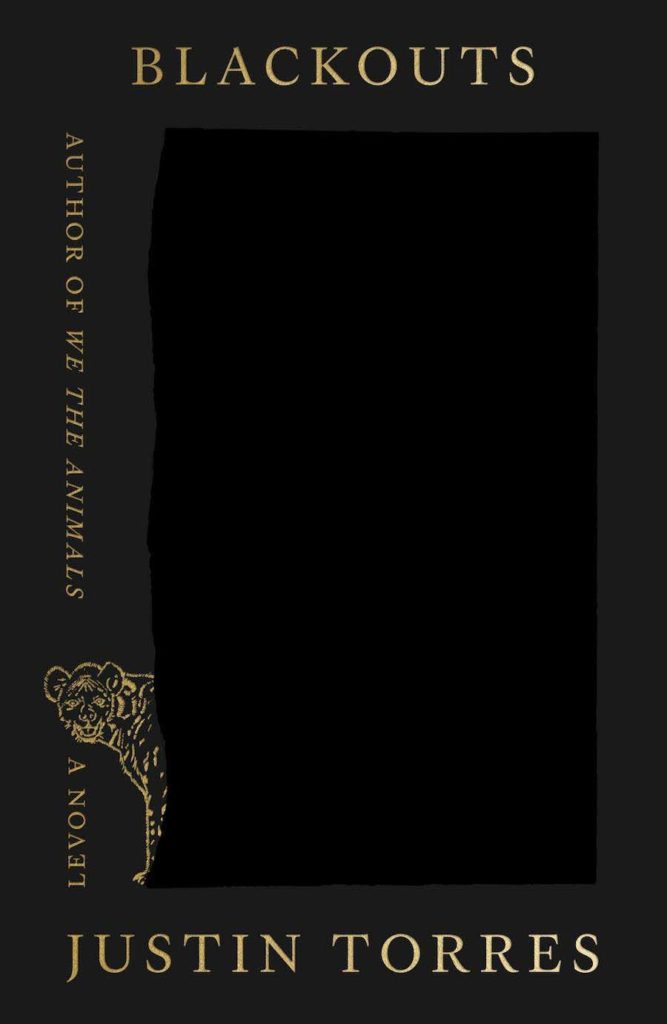Q&A: Author Justin Torres on pushing creative boundaries in new novel ‘Blackouts’
Justin Torres looks into the camera for a headshot. The associate professor of English released his second book, “Blackouts,” on Tuesday. (Courtesy of Justin Torres)
By Sanjana Chadive
Oct. 13, 2023 4:34 p.m.
This post was updated Oct. 17 at 8:18 p.m.
Justin Torres is piecing together hidden histories in his latest work.
Recently chosen as a finalist for the 2023 National Book Award, “Blackouts” was released Tuesday. The associate professor of English’s second novel follows two men of different generations who have a book-length conversation about their lives and some of the lost chapters of queer history. Moreover, Torres said he included blackout poems and archival images to elevate the ideas of his novel.
Torres spoke with the Daily Bruin’s Sanjana Chadive about the messages in “Blackouts” and his writing journey.

[Related: Book Preview: Fall 2023 to see Britney Spears’ memoir, return of Percy Jackson]
This interview has been edited for length and clarity.
Daily Bruin: Why did you decide to tell this story?
Justin Torres: One of the things that has always interested me is genealogies and lineages – especially when you’re queer or come from a mixed heritage background, or if you’re estranged from your family of origin. There are ways in which there are these natural lineages that happen to certain people (and) to certain families that they just understand their lineages and whatnot. Then there are other people that I think just set off searching for something and looking for something, and what you find can be very disturbing or very different than you expected.
DB: How do different literary elements ground the themes of the novel?
JT: One of the really fun things about the book is that Juan Gay – the older man that is dying – is a very literary character. He is somebody who reads everything, has read everything, reads widely and is constantly alluding to other literary texts in his speech. He’s constantly trying to get a narrator to think in broader terms, think about history, think about his connections to literature and think about the ways in which people have been investigating the things he’s interested in, through novels and poetry.
DB: What are the similarities and differences between “Blackouts” and your first novel, “We the Animals”?
JT: I think they’re really, really different books. “We the Animals” is kind of an immediate book, told in the first person plural. It was my first book – I wrote it 12 years ago. “Blackouts” is a much more puzzling book. What it’s doing with time, the way that it’s structured and the images – it’s a more challenging read.
That said, there are similarities. Anybody who’s read my first book, “We the Animals,” would see a lot of similarities between the boy who narrates that book and the young man who narrates this book. You can see them as the same person, and I think there’s an invitation to see a lot of biographical overlap between those characters’ backgrounds. But they are also just different books. It’s kind of like the metaverse – the same character, but clearly different literary contact.
[Related: Q&A: Laura Picklesimer discusses upcoming LA Greek life satirical novel]
DB: What kind of emotions did you experience while writing “Blackouts”?
JT: It was really hard. I got really lucky with my first book, and so my whole life changed after that book was published. I felt like I had to do a lot of work really thinking about what kind of writer I wanted to be. The first book was the absolute best I could do at the time. After my book came out, I started teaching more – I got the job at UCLA, I was doing more research, I was reading. I just happened to be able to breathe with more focus and intention than I’ve ever been able to do in my life.
I really wanted to stretch myself to do something different and do something new. It doesn’t necessarily feel good to stress yourself. (It) feels like constantly hitting against the limits of your own ability, and that’s frustrating. I find writing to be pretty difficult. I love editing and revising, but I find generating new work to be really difficult. So I went really slowly and tried and failed and tried again.
